Most people would agree that honeybees need help. Concerns about their dwindling numbers and the pesticides used on the food they eat have rallied environmental activists around the save-the-bees cause.
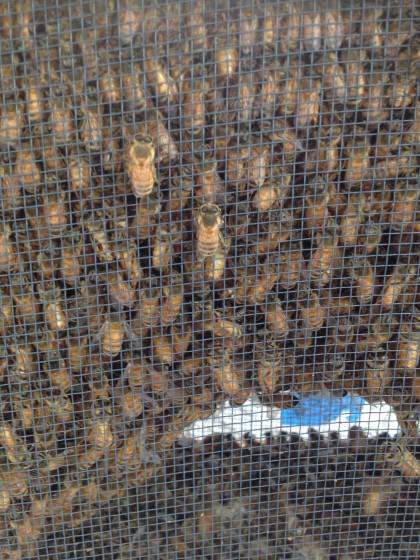
That increased awareness, combined with a host of other reasons including a movement to buy and produce local-made, organic honey, has spurred another noticeable trend: a rise in urban beekeeping, something we discuss in this podcast.
The increased number of beehives we’re hearing about in cities around the world brings with it another conversation about regulation. How are cities striking a balance between wanting to engage with sustainable, green efforts that support a healthy pollinator ecosystem while also protecting their citizens from pesky flying insects that swarm and sting when threatened?
It’s not always an easy question to answer. City rules on this topic are as diverse as the beehives taking up residence on rooftops. In some places, it’s illegal for an individual to have a beehive on his apartment building balcony because of the risk the bees pose to the general population. In other places, beehives are illegal in urban spaces in much the same way that keeping cows, goats and sheep is illegal. Other cities are incredibly lenient in regulating beekeeping practices, and anyone who wants a hive can set one up. Some municipalities require beekeepers to register their hives, like dog owners who have to register their pups. And elsewhere, the idea of urban beekeeping is so new that the city council hasn’t had to deal with regulating it yet.
New York, for instance, lifted a ban on beekeeping in 2010, and amended a city health code to allow residents to keep hives of the common, nonaggressive honeybee. Beekeepers must register their hives and adhere to other standards, such as maintaining a certain distance from property lines, providing water sources, and being able to control swarms, said Andrew Coté, president of the New York City Beekeepers Association.
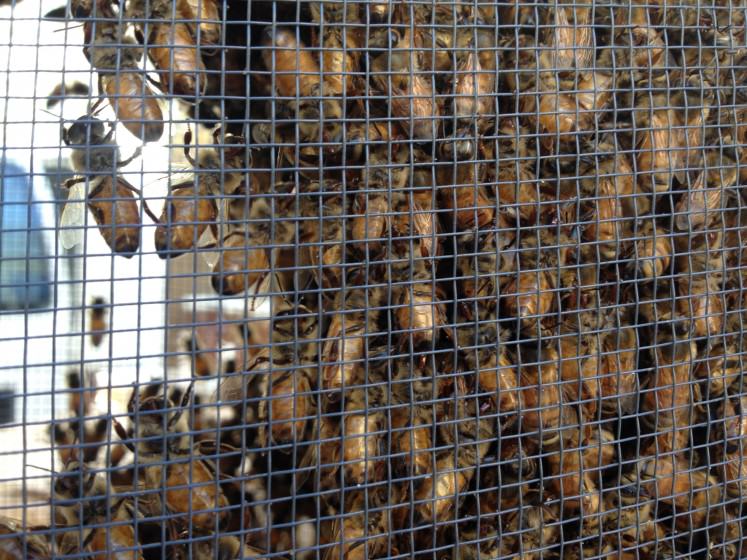
“I think things need to be regulated to some extent. We need licenses for our dogs, or to drive a car, or to operate a hotdog cart,” he said. “And, I think when you’re talking about a box of 75,000 flying, stinging, venomous insects, I think, it’s reasonable that they’re registered and that there is some sort of regulation because not everyone is as courteous as perhaps they need to be.”
City officials in San Francisco, a city where social leanings traditionally bend to the left and city-improvement ideas are experimented with more liberally, foster an open dialog about urban beekeeping, said Terry Oxford, a San Francisco beekeeper, artist, and environmental activist.
“San Francisco is a joy and a gift. It’s so advanced and ahead of the curve in terms of really understanding really important issues and in offering a platform for those issues. Sustainability is part of the local conversation all the time,” she said. “Beekeeping is not illegal here. The way it’s written in the books is that if someone complains, you have to move your bees. So, what I’ve learned, is how to be very, very nimble as a rooftop beekeeper and how to get 60,000 bees off a roof if I have to.”
Barcelona’s local government and the Catalan regional parliament are also reviewing the issue, said Jaume Clotet, a beekeeper who runs Mel.lis Serveis Apícoles.
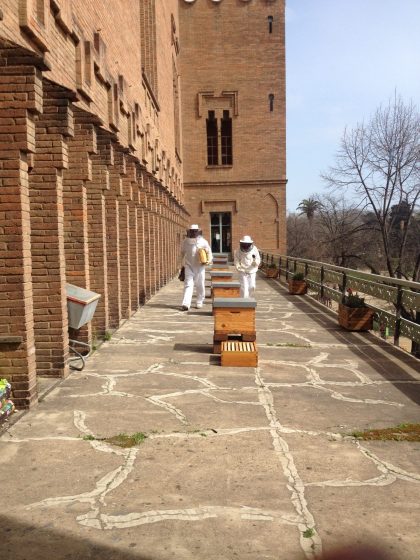
Clotet manages 90 beehives in Barcelona’s metropolitan area and nearby rural areas, and, in addition to the Museu de Ciències Naturals’ (Museum of Natural Sciences) rooftop hives, he helps manage Barcelona’s two municipal-run apiaries at a city park and community garden. Along with Apicultura Urbana, Clotet has proposed plans to Barcelona city officials to install hives in eight other locations around the city.
Recently, there has been increased sensitivity around expanding an urban beekeeping footprint, he added. Barcelona has a law that protects bees, and the city is collaborating with beekeeping advocates to better understand how more beekeeping efforts can work within the city limits. Also, in March 2014 the Generalitat (the Catalan government) changed a regulation prohibiting animal-production activity within 400 meters of a city; the original rule included all sorts of animals such as cows, chicken, pig, sheep, and, yes, bees. Now, residents can ask each city hall for permission to install beehives; if permission is granted, beekeeping efforts can move forward without the province’s minimum distance requirement, Clotet said.
“Individuals citizens shouldn’t be the ones deciding if they can keep beehives at home. This should be controlled. The ones who should be primarily concerned about this—and who should set the first examples of how it could work within a city—should be the local authorities and local city halls,” he said. “They should start with this and check how it goes and how it grows, and how much it grows. Hopefully, next year, there will be one or two new beehive facilities in the city. Of course, I would like to install as many beehives as possible, but, like everywhere, we live in cities and towns, and the opinions of citizens should absolutely be considered.”
Jennifer Baljko
Barcelona
What is your city’s approach to monitoring and regulating beekeeping activities? Tell us on Twitter (@TNatureOfCities) or in the comments section below.
Do you believe city governments should regulate urban beekeeping?
When it comes to urban beekeeping, would you prefer…
—Strict regulation?
—A minimum amount of regulation?
—No regulation at all?
—Something in the middle?
Should urban beekeeping regulations lean more toward…
—Supporting sustainable city pollination efforts?
—Protecting humans?
—Protecting bees?
—None of these things?
—Something else?
Related Stories:
The City Bees. This is The Nature of Cities Podcast Episode 005
About the Writer:
Jennifer Baljko
Jennifer Baljko is an avid traveler, longtime walker and a lifetime learner. She’s a city dweller who recently became a tree hugger (literally, she throws her arms around trees and hugs them), but feels at home almost anywhere.

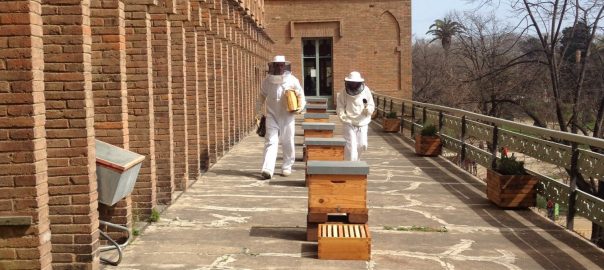
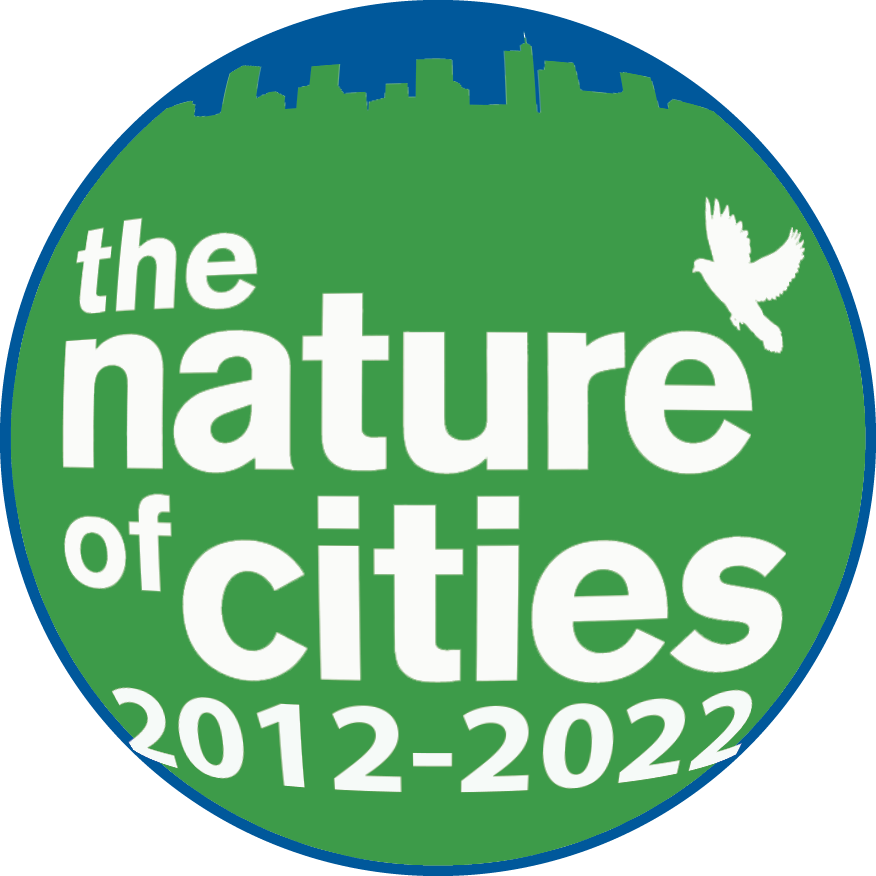
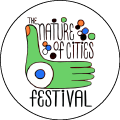
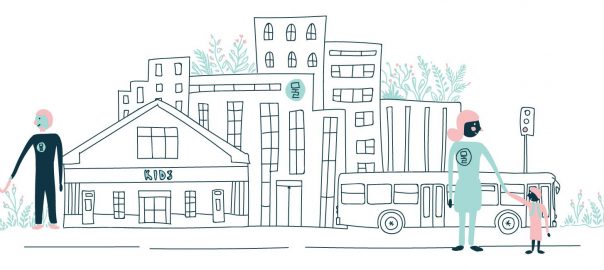

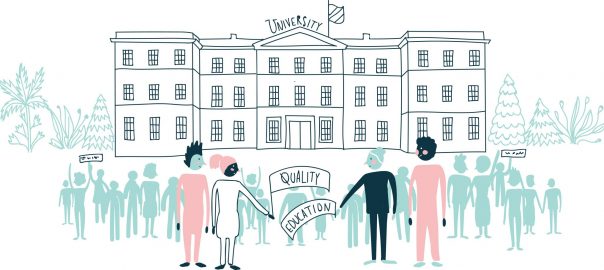
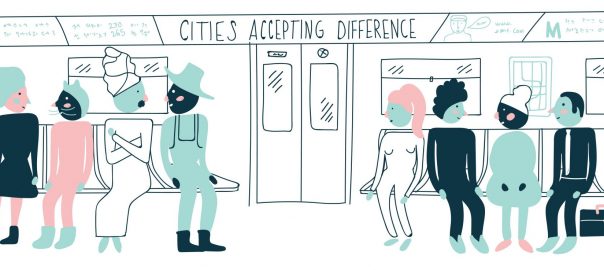




European honeybees are the tip of the iceberg on pollination services, and native bees should always be given some air-time when discussing this point (especially in regions where honeybees are introduced, managed species). The lack of education on (and funding for) native bees is a serious problem for the future of life on earth, as noted by the previous comment. For all of us who speak about or promote beekeeping, I’d like to suggest that we always make reference to native pollinators, and inform ourselves a bit to answer any questions.
African Bees are not the only pollinator on earth…
As well, not all bees are “flying, stinging, venomous insects”, in fact very few are. But the ones we manipulate for honey production and pollinating crops, well… they STING!
Even more, there are thousands of native bee species around the many different regions of the world that may be as effective at pollinating, but we don´t even know about their existence. Not even one of the thousands native bees of the Amazon basin sting or poisons (as far as I know). But we just focus on the ones that humans had “manage” for centuries.
Why not enhance protection and awareness towards the other pollinator insects and native bees?
ohh yeah… I forgot…. money and economic issues…
For me, what bees need (and the other pollinators too!) is healthy ecosystems and environments. That for a city means diversity and expansion of its green areas: more flowers, gardens and parks that respect and care for native vegetation.
Bee know how to manage themselves, they have been doing it for millions of years…
ohh again… I forgot the money issues and the economics… sorry.